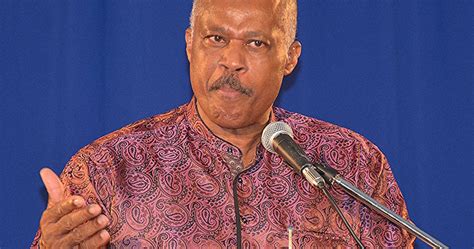A Quote by Richard Branson
About 40 percent of my time is spent on social issues and building new organizations, more for the benefit of the climate or health issues.
Related Quotes
We need to start identifying the triggers that aggravate mental health issues in our society - bullying, social media negativity and anxiety, gender based violence, substance abuse, stigma around issues such as maternal issues, etc., and we need to speak up about these more and get to the source of the problems.
The fallacy is that politicians don't really do much about social issues. They just demonize their opponents as elitists and reap the benefit. It's a stupid way to do politics. Economic issues can more often be addressed concretely, and it would seem logical for people to vote their interests in this area.
A more just world is possible. In most of the global issues, and also in so many of the development issues I'm involved in in our region, the young people that I am working with are seizing the tools at their disposal and trying to use them well, for issues far larger than their immediate personal benefit and concerns. That's what gives me hope.
I think the Resurrection continues to be a pivotal issue, a pivotal question for people. I think a lot of other issues have been raised in interim years, about the nature of truth, of course gender issues, issues involving social matters like abortion and euthanasia and so forth, those swirl about and change from time to time, but I think the fundamental question of whether or not Christianity is true ultimately goes back to the Resurrection.
I like Mitch Daniels on the fiscal conservative issues. You disagree with him on this idea that social issues, you takeoff the table. I do that for two reasons. I think the fiscal issues in a sense are a symptom of a lot of the deeper cultural issues in America. I don't think they are as disconnected as he thinks.
Furthermore, we believe that health care reform, again I said at the beginning of my remarks, that we sent the three pillars that the President's economic stabilization and job creation initiatives were education and innovation - innovation begins in the classroom - clean energy and climate, addressing the climate issues in an innovative way to keep us number one and competitive in the world with the new technology, and the third, first among equals I may say, is health care, health insurance reform.
Right after undergrad, I started doing low-level work on health issues in sub-Saharan Africa, and what struck me was the disconnect between how people in New York would speak about some of the issues people were facing. At the time, 2006-ish, there were a number of big media campaigns to raise awareness about HIV in sub-Saharan Africa.



































